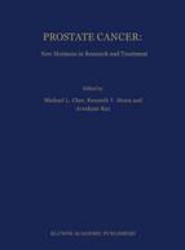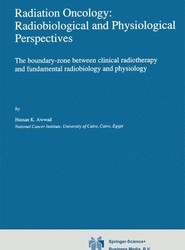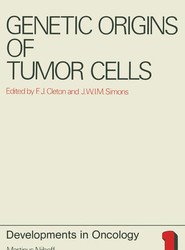(To see other currencies, click on price)
MORE ABOUT THIS BOOK
Main description:
Biochemical Modulation at the present time defines an area of study in which the intracellular metabolism of a given anti cancer agent is modulated (usually by a noncytotoxic agent or a cytotoxic agent at sufficiently low dosage to make it non cytotoxic) in order to either increase the effectiveness of the particular agent against tumor cells or decrease its cytotox icity against normal cells. The major focus of modulation has been the agents 5-fluorouracil (FUra), arabinofuranosylcytosine (ara-C), methotrexate (MTX) and a few alkylating agents. The major thrust of the studies has been to increase the flow of the anticancer agent along the pathway responsible for the formation of the cytotoxic species: for example, FUra to FUTP or ara-C to ara-CTP. While in most cases the application of research re sults to clinical trials does not require the subsequent exper tise of the laboratory researchers, application of biochemical modulatory schemes to clinical protocols necessitate a dramatic break with the past procedures. As shown in the laboratory clinical loop below, close collaboration between the laboratory and clinical investigator is essential. While the laboratory REDEFINE TECHNOLOGY, TESTS OR QUESTIONS FOR FURTHER THERAPEUTIC ADVANCE CLINICAL EXPERIMENTAL PROTOCOL (LABORATORY) RESEARCH STUDIES DEFINE AND TEST APPROPRIATE SCIENTIFIC PARAMETERS results define rationally-based regimens, it is essential that the clinical protocols contain the requirement that clinical material (either tumor or normal tissues) be sampled to deter mine whether the biochemical modulation being proposed is in fact beinq accomplished.
Contents:
1. Biochemical Modulation of Anticancer Agents: An Overview.- 2. Biochemical Loci for Modulation of 5-Fluorouracil Activity.- 3. Biochemical Modulation of 5-Fluorouracil with Pyrimidines, Purines and their Nucleosides.- 4. Biochemical Modulation of Pyrimidine Pools for Enhancement of Antipyrimidine Cytotoxicity.- 5. Modulation of 5-Fluorouracil Cytotoxicity by Intracellular Pools of 5-Phosphoribosyl-1-Pyrophosphate (PRPP).- 6. Biochemical Rationale for Selectivity in the Modulation of Methotrexate Activity During Leucovorin Rescue or Early Nucleoside Protection.- 7. Clinical Aspects of FUra Metabolism Brian Leyland-Jones and.- 8. Metabolic Modulation of Ara-C.- 9. Enhancement of Alkylating Agent Cytotoxicity by Radiation Sensitizers.- 10. Modulation of Alkylating Agents by Radiation Sensitizers -Clinical Aspects.- 11. The Role of Cellular Glutathione in Response of Tumor Cells to Radiation and Drugs.- 12. Modulation of Intracellular Levels of Glutathione.- 13. Glutathione Depletion with Buthionine Sulfoximine: Potential Clinical Applications.- 14. Modification of Cell Sensitivity to Anticancer Agents by Polyenes.- 15. Modulation of the Efflux of Anticancer Agents.- 16. Problems in the Clinical Evaluation of Biochemical Modulation Therapy.
PRODUCT DETAILS
Publisher: Springer (Springer-Verlag New York Inc.)
Publication date: September, 2011
Pages: 350
Weight: 569g
Availability: Available
Subcategories: Biochemistry, Oncology
From the same series
Dirk J. Ruiter
R. Verley
H.F. Seigler
Kenneth V. Honn
Franco M. Muggia
P. Hilgard
Noburo Kobayashi
James M. Church
L. Dogliotti
A. Giacosa
Seymour Garte
John Masters
Kintomo Takakura
B.A. Stoll
J. Mark Elwood
Laurence H. Baker
Laurence H. Baker
George D. Demetri
B.A. Stoll
A. Giacosa
Franco M. Muggia
Matthew J. van Zwieten
L.A. Liotta
Kenneth A. Foon
P.I. Reed
Paul H. Sugarbaker
Gabriel A. Kune
Frederick A. Valeriote
R. Ceriani
B. Lowenberg
D.G. Poplack
J. Bánóczy
Thomas R. Tritton
Miles P. Hacker
Aaron Polliack
B. Lowenberg
Pelayo Correa
Alexander H.G. Paterson
Franco M. Muggia
J. Aisner
Stephen T. Sonis
F.J. Cleton
Kenneth V. Honn
Stephen T. Sonis
Soldano Ferrone
Stephen B Howell
C.C. Tijssen
B.W. Hancock
B.W. Ongerboer de Visser
A.P.M. Heintz
B.A. Stoll
A.M. Ward
Daniel L. Kisner
Marvin A. Rich
J. Gordon McVie
J.R. Ryan
Marvin A. Rich
Kenneth V. Honn
D.G. Poplack
Anthony J. Mastromarino
Marvin A. Rich
Laurence H. Baker
P.K. Pattengale
G.B. Snow
Frederick A. Valeriote














































































